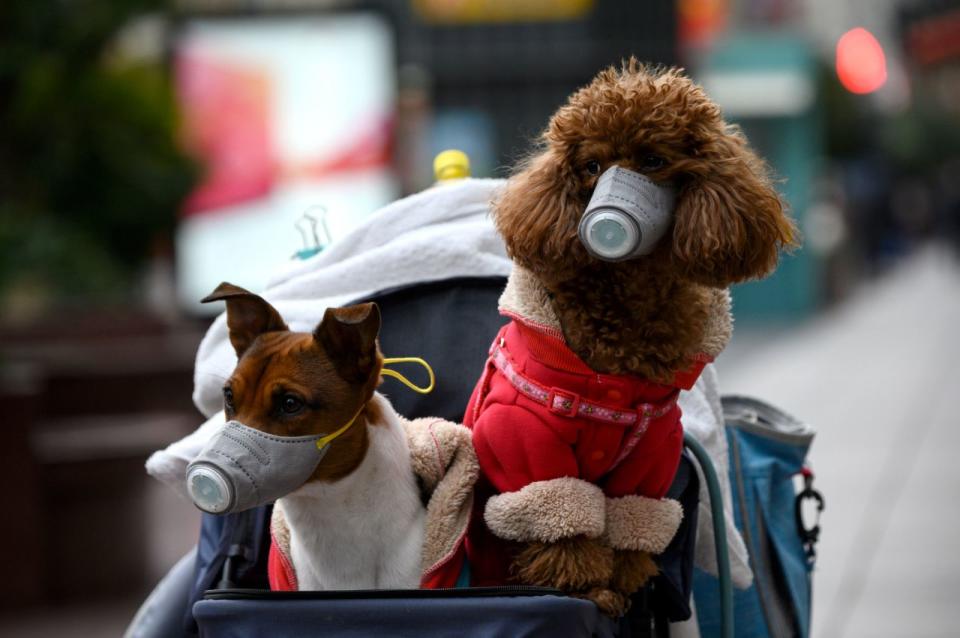Pets from infected households should be kept away from high-risk people to stop coronavirus spread, government was told

Pets living in households infected by coronavirus should stay away from high risk people, a new scientific document has revealed.
The findings of a new report from the Scientific Advisory Group for Emergencies (SAGE) analysing the risk of animal to human transmission of COVID-19 claims pets can transmit coronavirus via their fur.
However the documents, published on Friday, reveal that the risk of pets spreading the virus to humans is considered “medium”.
But that risk remains “high” for vulnerable people with underlying health conditions and poor immune systems.
The document states: "Any risk management measures when considering the presence of a companion animal in the household of an infected person should ensure that the animal is controlled to prevent contact with other humans who are at greater risk of contracting severe infection."
“Until further information is made known about the likely infectivity of companion animals exposed to SARS-CoV-2, the precautionary approach must be used.
“In the event of more information being made available, this risk assessment will be reevaluated.”
However, the findings state that there is a bigger risk of humans transmitting the virus to pet animals in the first place.
It continued: "There is a strong possibility that the animal could act as a fomite for short periods of time, carrying virus on the fur, which could transfer virus to other members of the household or people in close contact.
"Therefore, we consider this risk of exposure also to be, at most, medium likelihood. This likelihood nevertheless is outweighed by that from other infected people in the household."
The document added: "Cats and dogs are equally susceptible to the virus attaching to host cells, because of the structural similarity of the receptor protein, ACE2, to the human receptor."
It follows recent debate over whether pets and animals themselves can catch COVID-19 after a Pomeranian dog was said to have caught the virus in Hong Kong in February.

SAGE based the report on a qualitative risk assessment following tests on the 17-year-old Pomeranian - and another, a German Shepherd - whose owners had both contracted coronavirus.
In response to the report, Professor James Wood, head of veterinary medicine at the University of Cambridge, told The Sun: “Despite millions of people having had Covid-19, the numbers of pets found to be ill or infected is still tiny.
"Put simply, our pet dogs and cats can catch Covid-19 from us, when they are living with us, but only do on very rare occasions. The risks of owners catching Covid-19 because their pet dog or cat has it are very low.”
Coronavirus: what happened today
Click here to sign up to the latest news, advice and information with our daily Catch-up newsletter
Read more about COVID-19
How to get a coronavirus test if you have symptoms
How easing of lockdown rules affects you
In pictures: How UK school classrooms could look in new normal
How public transport could look after lockdown
How our public spaces will change in the future
Help and advice
Read the full list of official FAQs here
10 tips from the NHS to help deal with anxiety
What to do if you think you have symptoms
How to get help if you've been furloughed



